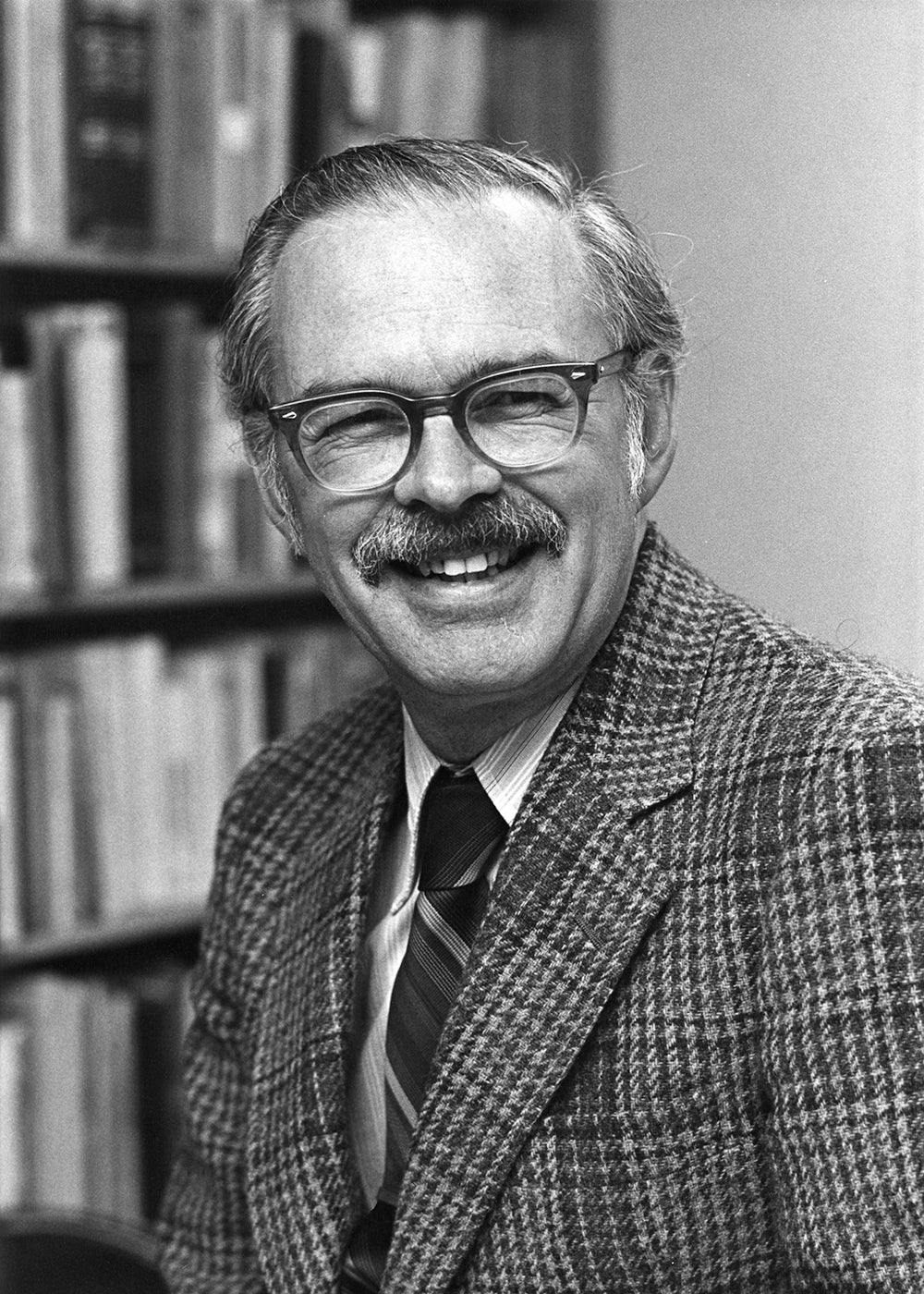Edwin “Ted” Good, professor emeritus of religious studies at Stanford, died on Sept. 12 in Eugene, Oregon, from multiple causes. He was 86.

Edwin Good was known for his literary approach to ancient Hebrew texts and his passion for early pianos. (Image credit: Chuck Painter / Stanford News Service)
Known for his translations of and literary commentary on the Hebrew Bible, Good approached the text as a collection of ancient stories. He traced their origins in the oral tradition and their connections with one another.
Throughout his career, Good authored several books on the Hebrew Bible, including In Turns of Tempest: A Reading of Job with a Translation (Stanford Press, 1998); a new translation of Genesis, Genesis 1-11: Tales of the Earliest World (Stanford Press, 2011); and most recently a new translation of the Song of Songs, titled Song of Songs: Codes of Love, which will be published by Wipf and Stock in 2015.
Good joined the Stanford religious studies faculty in 1956 and served as chair of the Religious Studies Department from 1986 to 1989. From 1970 to 1991 he also held a courtesy appointment in the Department of Classics.
Professor Hester Gelber, a Stanford medieval scholar, was Good’s colleague in religious studies for a decade prior to his retirement and a friend afterward. “Ted was a delightfully warm, enthusiastic man, very supportive of a junior colleague when I first entered the department, always intellectually curious and open. He kept his sense of humor and his warmth up to the end,” Gelber said.
A passion for the piano
Good was born in Bibia, French Cameroun, on April 23, 1928. His parents, Albert and Mary Good, were American Presbyterian missionaries who worked in West Africa. Good moved to Wooster, Ohio, when he was 5 years old.
He earned his bachelor’s degree in music from Westminster College in Pennsylvania, and a master’s of divinity from Union Theological Seminary in New York. Before earning a PhD in religion at Columbia University, Good earned a master’s in music from Stanford, where he wrote his thesis under William Mahrt, currently the director of Early Music Singers, and associate professor of music in the Center for Medieval and Early Modern Studies.
It was during this time that Good developed his passion for the history of the piano and for playing early pianos, Mahrt recalled.
Gelber added, “Ted had a wonderful ear for language, not surprising in someone who was also such an accomplished musician.”
Good enjoyed performing chamber music and published a highly regarded book on the history of the piano, Giraffes, Black Dragons and Other Pianos. The book received the Otto Kinkeldey Award of the American Musicological Society as the best musicological book in English in 1982-83.
After retiring from Stanford in 1991, Good worked at the Smithsonian in Washington, D.C., on a transcription of the German diaries belonging to one of the Steinway brothers responsible for bringing the pianos to the United States.
When Good visited the Stanford campus a few years ago for a colloquium on his Genesis book, he brought down his replica of the earliest piano – the Cristofori – that his wife, Anita Sullivan, had commissioned for him. After giving a recital on the instrument for the Music Department, Good donated the instrument to the Stanford University Early Music Program.
He spent the last 14 years in Eugene, Oregon. He leaves behind his wife, the poet Anita Sullivan; sons Brian, Larry and John; his first wife, Janice S. Good; daughters-in-law Karen (Larry) and Beverly (John); and three grandchildren, Ralph and David Good, and Carlin Greenfield.
A memorial celebration was held Oct. 18 at Tsunami Books in Eugene, Oregon.